A true copy attestation, also known as a certified true copy or a copy certification, is a service provided by notaries and certain authorized individuals to verify that a copy of a document is a true and accurate reproduction of the original. This can be particularly important in various situations, such as legal matters, academic applications, or when you need to provide copies of important documents while retaining the originals.
What is the purpose of true copy attestation?
The purpose of true copy attestation is to provide an official, legally binding confirmation that a document is an exact copy of an original document. This type of attestation is often used in legal and financial contexts, where the accuracy of documents is of utmost importance.
True copy attestation is typically used to prove the authenticity of a document.
Georgia state law prohibits notaries public from certifying copies of birth certificates, death certificates, marriage licenses/certificates, divorce decrees, court records, tax returns, vehicle titles and law enforcement records . Only authorized government vital records offices can produce certified copies of original birth certificates.
Georgia notaries cannot certify copies of documents that have designated government custodians for issuing certified copies. They are restricted from certifying vital records, court records, government licenses/registrations, and other publicly recorded documents available directly from official sources. Only originals of these can be notarized.
Likewise, if certified copies of public records or publicly recorded documents are available from official sources like a county clerk office, Georgia notaries may not independently certify copies of those records. They can only certify document copies if no other certified source exists.
This restriction is in place to prevent potential fraud or misuse of notarized public document copies when certified originals can be obtained through proper government channels. Georgia notaries must adhere to these limitations on certifying copies of vital records, public documents, and publicly filed documents accessible elsewhere.
How does one go about getting a true copy attested?
Getting a true copy attested is a relatively simple process, but it is important to understand the steps involved in order to ensure that the document is properly authenticated.
In summary, the process of getting a true copy attested involves obtaining a copy of the original document, arranging a meeting with an authorized attesting individual, signing and dating the copy in their presence, and receiving the attested copy with the official seal or signature. This attested copy is a legally recognized representation of the original document, ensuring its authenticity and reliability for various purposes.
Here's how the process of true copy attestation typically works:
The specific requirements can vary by jurisdiction and the type of document being attested, but here are some common steps and considerations:
01.Find a Qualified Authority:
To obtain such a document, you typically need to find a qualified authority who is authorized to perform this service. In many cases, notaries public can provide true copy attestations. Other authorized individuals or organizations may also be designated for this purpose, depending on your location.
10. Use of the Certified Copy:
Once you have the certified copy, you can use it for various official purposes, such as submitting it to government agencies, educational institutions, or other entities that require proof of the authenticity of the original document.
09. Date:
The date of the attestation should also be included on the certified copy.
08. Seal and Signature:
The notary or authorized individual will affix their official seal or stamp to the certified copy and sign it. This seal and signature serve as confirmation of the attestation.
07. Certification:
If the notary or authorized individual is satisfied that the copy is a true and accurate reproduction of the original, they will typically add a certification statement to the copy. This statement will confirm that they have witnessed the copying process and that the copy is certified as a true copy of the original..
02. Gather the Original Document:
Ensure that you have the original document that you want to create a certified copy of. The original document must be in good condition and clearly legible.
03. Make a Copy:
Create a photocopy or digital scan of the original document. This copy should be an exact replica of the original, including all text, signatures, and any attachments or exhibits.
04. Visit the Notary or Authorized Authority:
Schedule an appointment with the notary public or authorized individual who can perform the true copy attestation. Bring both the original document and the copy with you.
05. Verification of identity:
Be prepared to provide proof of your identity to the notary or authorized authority. This may involve presenting government-issued photo identification, such as a driver's license or passport.
06. Witnessing the Copying Process:
The notary or authorized individual will compare the original document with the copy to ensure that they match exactly. They will check for any discrepancies, missing pages, or alterations.
It's important to note that not all documents are eligible, and the requirements may vary by jurisdiction. Additionally, some institutions or authorities may have specific guidelines regarding the acceptance of certified copies. Therefore, it's advisable to check with the recipient of the certified copy to ensure compliance with their requirements. Consulting with a notary public or authorized authority in your area is often the best way to navigate the process correctly.
What are the requirements for true copy attestation?
In order for a document to be attested as a true copy, the following requirements must be met:
It's crucial to approach this process with careful attention to detail and compliance with the specific requirements of your document and jurisdiction. Consulting with a qualified notary public or authorized individual who is experienced in the attestation process can help ensure that all conditions are met, and your certified true copy is accepted for its intended use.
Types of Documents Requiring True Copy Attestation
True copy attestation is essential for a wide range of documents across various contexts, ensuring their authenticity and legitimacy.
Educational Documents:
- Academic Transcripts:
Copies of academic records, such as transcripts, may need attestation for educational or professional purposes.
- Diplomas and Degrees:
To prove the authenticity of diplomas and degrees earned from educational institutions.
- Professional Certifications:
Copies of certificates for professional qualifications, such as medical licenses or teaching certifications
Identification and Personal Documents:
- Passports:
Attested copies of passports are often needed for visa applications or other international documentation.
- Driver's Licenses:
Copies of driver's licenses may require attestation for certain administrative or legal processes.
- Birth Certificates:
Copies of birth certificates may be attested for various official and immigration-related matters.
- Marriage Certificates:
Attestation of marriage certificates can be necessary for legal or immigration purposes.
- Divorce Decrees:
Copies of divorce decrees may be needed for legal proceedings or recordkeeping.
Legal and Financial Documents:
- Contracts and Agreements:
Copies of legal contracts or agreements may require attestation to validate their authenticity and enforceability.
- Property Deeds and Titles:
To verify property ownership and legal rights, copies of deeds and titles may be attested.
- Wills and Trusts:
Copies of wills and trust documents may be attested for legal purposes or to ensure their authenticity.
- Financial Statements:
Copies of financial statements, such as bank statements or income tax returns, may require attestation for loan applications or legal matters.
Corporate and Business Documents:
- Articles of Incorporation:
Copies of corporate documents, including articles of incorporation, may need attestation for business transactions and legal compliance.
- Contracts and Agreements:
Business contracts and agreements may require attestation to demonstrate their legality and validity.
- Licenses and Permits:
Copies of licenses and permits, such as business licenses or permits for regulated professions, may need attestation.
Medical and Healthcare Documents:
- Medical Records:
Copies of medical records, including test results and treatment histories, may be attested for healthcare-related procedures or legal cases.
- Prescriptions and Medical Certificates:
Attestation of prescriptions or medical certificates may be necessary for certain medical and legal purposes.
Court and Legal Documents:
- Court Orders:
Copies of court orders, judgments, and legal documents may require attestation for legal proceedings or recordkeeping.
- Affidavits:
Copies of affidavits, which are sworn statements of fact, may need attestation for legal or administrative purposes.
Immigration and Visa Documents:
- Visa Applications:
Copies of various supporting documents, such as marriage certificates or bank statements, may require attestation for visa applications.
- Residency and Citizenship Applications:
Copies of documents proving residency or citizenship status may need attestation for immigration purposes.
The specific document and the need for attestation can vary widely based on individual circumstances, legal requirements, and administrative processes. It's important to consult the relevant authorities or organizations for precise guidance on the documents that require attestation in your specific situation.
What are the benefits of true copy attestation?
True copy attestation offers numerous advantages, including document authentication, enhanced legal standing, fraud prevention, global recognition, expanded educational and professional opportunities, streamlined administrative processes, and increased trust in the reliability of documents.

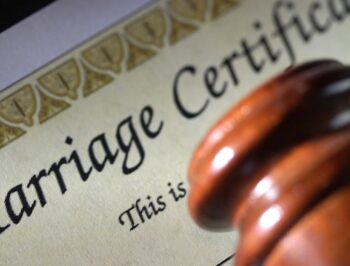
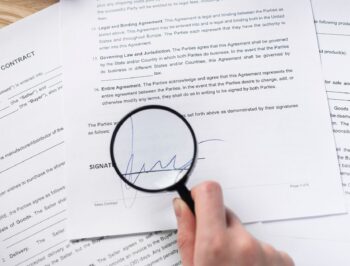

Document Authentication:
- Verification of Authenticity: Being a meticulous process that verifies the authenticity of a document, it confirms that the copy is a true and accurate representation of the original, ensuring the document's trustworthiness.
Legal Validity:
- Enhanced Legal Standing: It elevates the legal standing of a document. For legal contracts, agreements, or court records, attestation ensures that they can be presented in legal proceedings with confidence and are legally valid.
- Adherence to Legal Requirements: Many legal processes and government agencies mandate these type of attestations as part of their regulatory requirements. Complying with these requirements is crucial for achieving legal recognition and compliance.
Preventing Fraud and Forgery:
- Deterrence: The presence of such a document serves as a deterrent against fraud and forgery. It signifies that an authorized individual has thoroughly examined the document, making it challenging for unauthorized parties to manipulate or tamper with it.
- Document Integrity: By preserving the integrity of documents, it helps prevent unauthorized alterations or counterfeit copies, protecting individuals and organizations from potential fraudulent activities.
International Acceptance:
- Global Recognition: They are often necessary for documents intended for international use. They ensure that documents are acknowledged and accepted by authorities, institutions, and businesses worldwide.
- Facilitating Cross-Border Transactions: In international business, legal matters, or immigration processes, attested copies enhance the credibility of documents and facilitate cross-border transactions.
Educational and Professional Opportunities:
- Credential Verification: They are is invaluable for verifying academic credentials and professional certifications. It enables individuals to demonstrate the authenticity of their educational and professional qualifications to potential employers, academic institutions, and licensing bodies.
Streamlining Administrative Procedures:
- Efficient Processing: In administrative and governmental procedures, it streamlines document verification. This leads to more efficient handling of applications, reducing errors and delays in processing.
Property and Financial Transactions:
- Ensuring Property Rights: In property-related transactions, helps confirm property ownership and legal rights, adding an extra layer of security to real estate deals.
- Financial Transactions: In financial transactions, attested copies of financial documents are utilized to demonstrate financial eligibility, supporting loan applications, mortgages, and investment activities.
Confidence and Trust:
- Reliability of Documents: Clients can have confidence in the reliability and authenticity of documents bearing true copy attestations. This trust is essential for various transactions, legal proceedings, and record-keeping.
What are the risks of true copy attestation?
The risks of true copy attestation are numerous and can have serious consequences if not properly addressed.
Risk of Fraud:
A true copy attestation is a legal document that is used to verify the authenticity of a copy of an original document. If the copy is not an exact replica of the original, it can be used to commit fraud, such as forging signatures or altering documents.
When this process is not conducted accurately or is subject to fraud, it can have significant consequences:
Forgery:
If an individual attests to a copy that is not an exact replica of the original document, it opens the door to potential forgery. Fraudsters could exploit this situation to create counterfeit documents with false information, including forged signatures or fraudulent seals.
Document Alteration:
When the copy attestation process is not diligent, there is a risk of unauthorized alterations to the document. This could involve changing dates, amounts, or other critical information, leading to fraudulent activities.
Identity Theft:
In cases where identity documents are involved, such as passports or driver's licenses, improper attestation may facilitate identity theft. Fraudsters could use stolen personal information to create convincing copies for illicit purposes.
Legal Consequences:
An inaccurate or fraudulent attestation can result in legal repercussions for both the individual attesting to the copy and the person using the fraudulent document. Legal authorities may investigate and prosecute those involved in fraudulent activities.
Risk of misattribution:
Misattribution, which occurs when the attestation is attributed to the wrong person or entity. This risk can have various implications:
Wrongful Accountability:
If a notary or authorized signatory mistakenly attributes the attestation to the wrong individual, it can lead to wrongful accountability for the content of the document. This can be especially problematic in legal or contractual matters.
Loss of Trust:
Misattribution erodes trust in the attestation process and the reliability of certified copies. It can damage the reputation of the notary public or authority responsible for the attestation.
Potential Rejection:
Documents with incorrectly attributed attestations may be rejected by the intended recipient or authority. This can cause delays, inconvenience, and legal complications, especially if the document is required for time-sensitive matters.


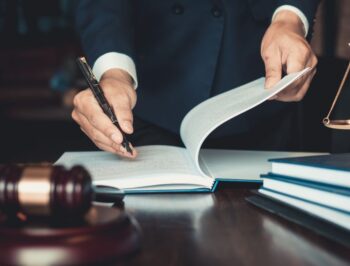
Mitigating Risks:
To mitigate these risks, it's essential to:
By taking these precautions and ensuring the attestation process is carried out with integrity and diligence, the risks associated can be minimized, and the process can serve its intended purpose of verifying document authenticity and accuracy.
What are the limitations of
true copy attestation?
True copy attestation is a process that involves verifying the authenticity of a document by comparing it to an original. It is a common practice used by many organizations, including government agencies, banks, and other institutions, to ensure the accuracy of documents.
However, there are some limitations to it. First, it can be difficult to determine the exact authenticity of a document.
One of the primary limitations is the inherent challenge in verifying the absolute authenticity of a document. Here are some factors that contribute to this difficulty:
To address these limitations and ensure the integrity of documents, individuals and organizations may consider supplementary measures such as thorough document reviews, background checks, and, in some cases, additional layers of authentication, depending on the importance and sensitivity of the documents in question.
What are the implications of true copy attestation?
The implications of true copy attestation are far-reaching. It is a critical part of the legal process, as it serves to ensure that documents are genuine and that the rights of the parties involved are protected.
This meticulous process plays a pivotal role in various legal, administrative, and professional contexts. Here's a closer look at the implications and importance of these types of attestations:
At its core, true copy attestation serves as a mechanism to establish the authenticity of documents. It provides confidence that the information contained in the copy accurately reflects the content of the original. This assurance is paramount in legal proceedings, official transactions, and various regulatory processes.
It is instrumental in safeguarding the rights and interests of individuals, organizations, and institutions. By confirming that a document is a genuine reproduction of the original, it helps prevent fraud, misrepresentation, and disputes that could otherwise arise from the use of fraudulent or altered documents.
Many legal systems and regulatory bodies require true copy attestations for specific documents to be legally recognized. For example, when submitting evidence in court, presenting academic credentials, or executing contractual agreements, having certified true copies can be a mandatory or highly beneficial practice.
In commercial and financial transactions, it streamlines processes by providing a standardized and trusted method for verifying document accuracy. This expedites transactions, reduces the risk of errors, and enhances overall efficiency.
Government agencies, educational institutions, and corporate entities rely on these attestations to maintain the integrity of their official records. This ensures that records are complete, accurate, and resistant to tampering or unauthorized alterations.
It helps individuals and organizations adhere to regulatory requirements. Certain industries, such as finance, healthcare, and education, have stringent regulations governing document authenticity. Compliance with these regulations often includes the use of certified true copies.
It is valuable on the global stage, facilitating the acceptance of documents across international borders. In cases like immigration, foreign education evaluations, or cross-border business transactions, attested copies are often prerequisites for document validity.
By meticulously comparing the copy to the original, it acts as a deterrent against document forgery and fraudulent activities. It discourages individuals from attempting to submit counterfeit documents for personal gain.
The consistent and reliable practice of true copy attestation fosters public trust in the authenticity of official documents and records. This trust is essential for the proper functioning of legal systems, government institutions, and educational establishments.
A true copy attestation is far more than a mere administrative formality—it is a cornerstone of document authenticity and integrity. It upholds the principles of fairness, transparency, and accountability in various domains, ensuring that individuals and organizations can rely on the accuracy and legitimacy of their documents. Its role in protecting rights, preventing fraud, and facilitating transactions underscores its critical importance in both legal and everyday contexts.
What are the challenges of true copy attestation?
The challenges of true copy attestation are numerous and varied:

Finding a Qualified Individual:
Challenge:
The first and foremost challenge of true copy attestation is identifying and engaging a qualified individual or authority to perform the attestation. Not everyone has the legal authority or competence to conduct this process.
Solution:
To address this challenge, individuals seeking true copy attestation should:
- Research and identify notaries public or authorized signatories in their jurisdiction who are legally empowered to perform true copy attestations.
- Verify the credentials and qualifications of the selected individual to ensure they have the necessary training and authority for the task.
- Understand the specific requirements and standards for true copy attestation in their jurisdiction, as they may vary.
- Seek referrals or recommendations from trusted sources to find qualified professionals.
Access to the Original Document:
Challenge:
True copy attestation requires a meticulous comparison between the copy and the original document. However, in some cases, individuals may not have access to the original document, as it may be held by another party or institution.
Solution:
To overcome this challenge:
- Make efforts to obtain access to the original document. This may involve contacting the entity or person in possession of the original and explaining the purpose of attestation.
- In situations where obtaining the original is not possible, explore alternative options, such as seeking certified copies from the issuing authority if applicable.
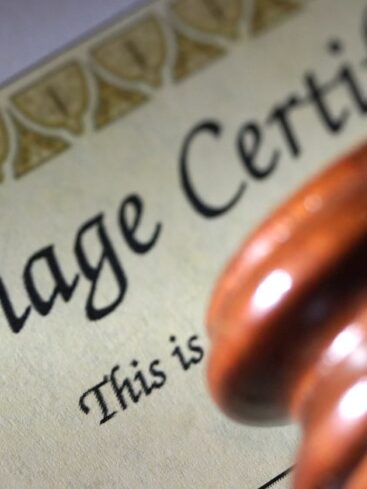
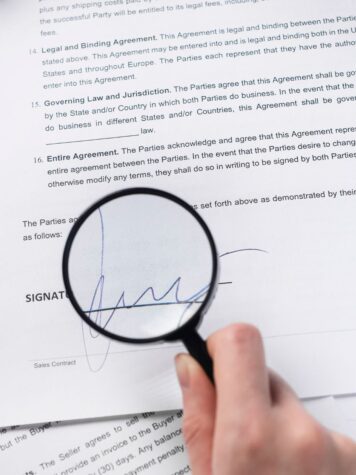
Document Complexity and Security Features:
Challenge:
Some documents, particularly official or government-issued ones, may feature intricate security elements, such as holograms, watermarks, or specialized printing techniques. Verifying the authenticity of these features can be demanding..
Solution:
Addressing this challenge may involve:
- Providing notaries or authorized individuals with access to reference materials or guidelines for recognizing and verifying security features.
- Seeking expertise from relevant authorities or experts when dealing with documents that have complex security measures.
Time Constraints:
Challenge:
In some cases, there may be time constraints that limit the thoroughness of the attestation process. Quick attestation procedures may not allow for in-depth document analysis.
Solution:
It's essential to balance the need for efficiency with the need for accuracy. Planning ahead and scheduling attestation appointments in advance can help mitigate time-related challenges.

Overcoming these initial challenges is crucial to ensuring the accurate and reliable attestation of documents, which, in turn, contributes to the document's authenticity and usability in various legal and business contexts.
Who can attest to the authenticity of a true copy?
The authenticity of a true copy can be attested to by a variety of individuals, depending on the document in question. Generally, the most reliable attestations come from individuals who are authorized to certify documents, such as notaries public, attorneys, or court clerks.
Notaries public are authorized to certify documents in most states.
Notaries Public:
- Role: Notaries public are authorized officials appointed by the state government to perform various legal functions, including certifying documents as true copies. They play a crucial role in verifying document authenticity and deterring fraud.
- Reliability: Notaries public are generally considered highly reliable sources. Their authority is widely recognized, and their attestations are accepted in various legal and administrative contexts.
Attorneys:
- Role: Attorneys, particularly those specializing in legal matters, can also attest to the authenticity of true copies. They have a comprehensive understanding of legal documents and their requirements.
- Reliability: Attorneys' attestations are generally reliable, especially in legal proceedings and transactions. Their expertise in document review and legal matters lends credibility to their attestations
Court Clerks:
- Role: Court clerks, who work within the judicial system, may be authorized to certify documents, including true copies, for court-related purposes.
- Reliability: Attestations by court clerks are typically accepted and reliable within the context of court proceedings and legal documentation.
Authorized Government Officials:
- Role: In some cases, government officials or employees may be authorized to certify documents, depending on the jurisdiction and the nature of the document.
- Reliability: Attestations by authorized government officials are generally reliable and accepted for specific government-related purposes.
Qualified Professionals in Specialized Fields:
- Role: In certain specialized fields, such as healthcare or engineering, professionals with relevant expertise may be authorized to certify documents within their respective domains.
- Reliability: While their attestations are reliable within their areas of expertise, they may not have the same level of recognition for general documents as notaries or attorneys.
Authorized Entity Representatives:
- Role: Some organizations or institutions have designated representatives who are authorized to certify documents on their behalf. For example, educational institutions may have registrars who can attest to academic transcripts.
- Reliability: Attestations by authorized representatives of organizations are typically accepted for documents related to that organization, such as transcripts or corporate records.
Specific Document Issuers:
- Role: In some cases, the entity that issued the original document may be authorized to certify true copies of their own documents. For instance, a university may attest to the authenticity of its own diplomas.
- Reliability: Attestations by document issuers are generally accepted for their own documents, but their authority may be limited to those specific documents.
International Authorities:
- Role: For documents intended for international use, such as for immigration or employment abroad, embassies or consulates of foreign countries may have specific requirements for attestation.
- Reliability: Attestations by international authorities are essential for cross-border document acceptance but may involve additional steps, such as embassy or consulate legalization.
The reliability of an attestation to the authenticity of a true copy depends on the authority and qualifications of the individual or entity performing the attestation. Notaries public, attorneys, and court clerks are generally recognized as highly reliable sources, but the suitability of the attesting party may vary depending on the document's nature and purpose. It's important to consider the specific requirements and regulations governing attestations in your jurisdiction and for your particular document.
Who can request a true copy attestation?
Anyone who needs to verify the authenticity of an original document can request a true copy attestation. This includes individuals, businesses, and organizations.
Individuals may need such request for a variety of reasons, such as when applying for a job, applying for a loan or mortgage, or when submitting documents to a government agency.
Here are some scenarios:
Individuals:
Job Applications:
Job seekers may need to provide attested copies of their educational qualifications, professional certifications, or identification documents as part of the job application process. Employers often require these documents to verify a candidate's credentials.
Loan or Mortgage
When applying for a loan or mortgage, individuals may be asked to provide such attestations of financial documents, such as bank statements, income tax returns, or property deeds, to establish their financial eligibility.
Immigration and Visa
Individuals seeking visas or immigration status in another country may require true copy attestations for various documents, including passports, birth certificates, and marriage certificates, as part of the application process.
Legal Proceedings:
Individuals involved in legal proceedings, such as divorce or child custody cases, may need to submit true copy attestations of important documents to the court.
Businesses:
Corporate Records:
Businesses often require true copy attestations for corporate documents, such as articles of incorporation, bylaws, and contracts, when conducting transactions, entering into partnerships, or seeking government approvals.
Compliance Requirements:
Certain industries, like healthcare and finance, have strict regulatory compliance requirements. Businesses may need to attest to the authenticity of documents related to licenses, permits, or certifications to maintain compliance.
Contractual Agreements:
Companies entering into contractual agreements with other businesses may request true copy attestations of the contract documents to establish their legality and enforceability.
Organizations:
Educational Institutions:
Educational institutions may need to provide true copy attestations for academic transcripts, diplomas, and certificates to verify the qualifications of their students or alumni.
Government Agencies:
Government agencies often require true copy attestations for various purposes, such as processing citizenship applications, recording property transactions, or validating official records.
Nonprofit Organizations:
Nonprofits may need true copy attestations for documents related to their tax-exempt status, board resolutions, or grant applications.
It's flexibility makes it a valuable resource for a wide range of individuals, businesses, and organizations. Whether it's for employment, legal matters, regulatory compliance, or international endeavors, the ability to request true copy attestations ensures that documents can be confidently and reliably verified, serving the diverse needs of different entities in various contexts.
Who benefits from a true copy attestation?
The primary beneficiaries of a true copy attestation are the document's owner and any other parties that require proof of the document's authenticity.

Document Owners:
- Document Verification:
Individuals who own important documents, such as academic certificates, identification papers, or property deeds, can benefit directly. It allows them to provide proof of the document's authenticity and integrity when required.
- Legal and Administrative Compliance:
It enable document owners to meet legal or administrative requirements. This is particularly crucial when submitting documents for official purposes, such as visa applications, employment, or academic admissions.
- Protection Against Fraud:
Owners of valuable documents can safeguard their interests. This deters fraudsters from attempting to submit counterfeit or altered copies of these documents.
Employers:
- Credential Verification:
Employers benefit as well when assessing job applicants' qualifications. Attested copies of educational degrees, professional certifications, and identification documents help employers verify candidates' credentials with confidence.
- Risk Mitigation:
By relying on attested copies, employers reduce the risk of hiring individuals who may present fraudulent documents. This enhances the integrity of their hiring processes.


Document Owners:
- Document Verification:
Individuals who own important documents, such as academic certificates, identification papers, or property deeds, can benefit directly. It allows them to provide proof of the document's authenticity and integrity when required.
- Legal and Administrative Compliance:
It enable document owners to meet legal or administrative requirements. This is particularly crucial when submitting documents for official purposes, such as visa applications, employment, or academic admissions.
- Protection Against Fraud:
Owners of valuable documents can safeguard their interests. This deters fraudsters from attempting to submit counterfeit or altered copies of these documents.
The point of using dummy text for your paragraph is that it has a more-or-less normal distribution of letters. making it look like readable English.
The primary benefit of true copy attestation is that it provides a reliable and secure way to authenticate documents.
True copy attestation is a process that involves verifying the authenticity of a document by comparing it to an original. It is a common practice used by many organizations, including government agencies, banks, and other institutions, to ensure the accuracy of documents.
However, there are some limitations to true copy attestation. First, it can be difficult to determine the exact authenticity of a document.
One of the primary limitations of true copy attestation is the inherent challenge in verifying the absolute authenticity of a document. Here are some factors that contribute to this difficulty:
- Lack of Original Examination: True copy attestation relies on comparing the copy to the original document. However, in many cases, the authorized signatory may not have access to the original document, especially if it is held by a different entity or authority. This absence of direct access makes it challenging to confirm the original document's authenticity.
- Complexity of Document Types: Documents come in various forms and complexities. Some documents, such as government-issued identification cards, are designed with security features to deter counterfeiting. Assessing the authenticity of these features can be difficult, even for trained professionals.
- Evolving Fraud Techniques: Fraudsters are continually developing new techniques to create convincing counterfeit documents. These techniques may include advanced printing technologies, holograms, and other security measures that are difficult to detect with the naked eye.
- Limited Expertise: Notaries public and authorized individuals may not always have specialized expertise in verifying certain types of documents. For instance, evaluating the authenticity of academic credentials or foreign-language documents may require specific knowledge and resources.
- Time Constraints: In some situations, there may be time constraints that limit the thorough examination of documents. Quick attestation processes may not allow for in-depth document analysis.
2. Employers:
- Credential Verification: Employers benefit as well when assessing job applicants' qualifications. Attested copies of educational degrees, professional certifications, and identification documents help employers verify candidates' credentials with confidence.
- Risk Mitigation: By relying on attested copies, employers reduce the risk of hiring individuals who may present fraudulent documents. This enhances the integrity of their hiring processes.
3. Educational Institutions:
- Alumni Verification: Educational institutions benefit when former students request attested copies of their academic transcripts and diplomas. This facilitates alumni verification for potential employers or other academic institutions.
- Preservation of Academic Records: It play a role in ensuring the integrity and security of academic records. Institutions can maintain the trustworthiness of their records through this process.
4. Government Agencies:
- Administrative Processes: Government agencies often require these attestations for various administrative processes, such as citizenship applications, property transactions, and legal proceedings. These attestations enhance the reliability of documents submitted to government entities.
- Compliance and Regulation: Certain industries, like healthcare and finance, must adhere to strict regulatory compliance. Government agencies may rely on it to verify documents related to licenses, permits, and regulatory approvals.
5. Legal Entities:
- Legal Proceedings: In legal proceedings, such as court cases, true copy attestations of critical documents provide transparency and authenticity. They help ensure that the evidence presented is accurate and reliable.
- Contractual Agreements: Businesses and individuals entering into contractual agreements benefit as well, as they certify the authenticity of the contract documents, making them legally enforceable.
6. International Applicants:
- International Recognition: Individuals applying for visas, immigration status, or employment abroad. These attestations enhance the acceptance and recognition of their documents in foreign countries.
- Cross-Border Transactions: It facilitates cross-border transactions and engagements by establishing the authenticity of essential documents, such as commercial contracts or academic records.
A true copy attestation serves as a crucial tool for document owners, employers, educational institutions, government agencies, legal entities, and international applicants. It enhances document reliability, promotes transparency, and provides a means to confidently verify the authenticity of critical documents in various legal, administrative, and professional contexts.
How much does it cost to get a true copy attested?
The cost of getting a true copy attested depends on a number of factors, including the type of document, the country in which the document is being attested, and the process used to authenticate the document.
Here are the key variables that influence the overall cost:
1. Type of Document:
- Complexity and Importance: The type of document being attested plays a vital role in determining the cost. More complex and critical documents, such as legal contracts, academic degrees, or property deeds, may involve higher fees due to the level of scrutiny and responsibility required.
- Number of Pages: For documents with multiple pages, such as academic transcripts or lengthy contracts, the cost may increase based on the per-page attestation fee.
2. Jurisdiction and Country:
- Location of Attestation: The cost can vary based on the country where the attestation is being conducted. Different countries have their own procedures, fees, and requirements for document attestation.
- Consular Attestation: If the attestation process involves consular or embassy legalization for international use, additional fees may apply, including consular service charges.
3. Attestation Process:
- Standard vs. Expedited Service: Many agencies or notaries offer both standard and expedited attestation services. Expedited services are often more expensive but result in quicker processing.
- Authentication Levels: Some documents may require multiple levels of authentication, such as notarization, state-level attestation, and embassy legalization. Each additional authentication step can incur extra costs.
4. Service Provider:
- Notary Fees: Notaries public or authorized individuals charge fees for their services. These fees can vary based on their location and expertise.
- Attestation Agencies: Some individuals or organizations specialize in document attestation services. Their fees may include service charges in addition to notarization or legalization costs.
5. Urgency:
- Processing Time: If there's a need for expedited processing due to time constraints, additional fees may be applicable. Expedited services typically come at a higher cost.
6. Additional Services:
- Translation Services: If the document requires translation into another language before attestation, translation fees will add to the overall cost.
- Courier or Shipping Fees: Depending on the location of the attestation service provider or the embassy, courier or shipping charges may apply when sending documents to and from different offices.
7. Document Copies:
- Number of Copies: If multiple copies of the attested document are needed, each copy may incur an additional fee.
8. Miscellaneous Costs:
- Notary Supplies: Some notaries may charge for notary supplies, such as stamps and seals, which are used during the attestation process.
The cost is influenced by a combination of factors, including the type of document, the jurisdiction, the attestation process, service providers, urgency, additional services, and the number of copies needed. To determine the exact cost for your specific document and circumstances, it's advisable to contact the relevant authorities, notaries, or attestation agencies and inquire about their fee structure and any applicable additional charges. Being aware of these factors helps individuals and organizations budget effectively for the attestation of their important documents.
In the United States, it typically costs between $2 and $50, depending on the type of document and the process used.
Where do I need to go to get a true copy attestation?
In order to get a true copy attestation, you will need to visit the issuing authority of the document you are trying to obtain a true copy attestation for. This could be a variety of places depending on the document in question.
For example, if you are looking to obtain a true copy attestation for a birth certificate, you will need to visit the local registrar's office in the area where the birth took place.
2. Academic Records (Diplomas, Transcripts):
For academic records like diplomas and transcripts, you may need to contact your educational institution's registrar's office or academic records department. They can authenticate and provide attested copies of your academic documents.
3. Property Deeds and Titles:
you will typically need to visit the local government office or county clerk's office where the property is located. They can verify and provide attested copies of property-related documents.
4. Legal Contracts and Agreements:
- For legal contracts and agreements, you may need to visit an attorney's office, a notary public, or a law firm. Attorneys and notaries are authorized to attest to the authenticity of legal documents.
5. Identification Documents (Passports, Driver's Licenses):
you may need to visit a notary public or a government agency responsible for issuing these documents, such as a passport office or Department of Motor Vehicles (DMV).
6. Corporate Documents (Articles of Incorporation, Contracts):
you may need to contact the relevant government agency, such as the Secretary of State's office. They can authenticate and provide attested copies of business-related documents.
7. Immigration Documents:
such as visas or residency permits, you may need to visit the consular section of the embassy or consulate of the country where you intend to use the attested copies.
8. Legal Proceedings Documents (Court Records, Affidavits):
you should contact the court where the case was heard or the attorney who handled the legal matter.
9. Medical Records:
you may need to contact the healthcare facility or medical records department where the records are stored. They can authenticate and provide attested copies of medical documents.
10. Miscellaneous Documents:
For other types of documents, the location may vary. Notary publics and certain authorized agencies can provide attestation services for a wide range of documents.
The specific location for obtaining a true copy attestation depends on the type of document you need to attest. Researching the issuing authority or authorized entities related to your document is essential to ensure you visit the correct location and follow the proper procedures for attestation.
Where can I find a list of acceptable true copy attestations?
What is the difference?
The best place to find a list of acceptable true copy attestations is on the website of the government agency or organization that requires the attestation. For example, if you are submitting a document to the United States Citizenship and Immigration Services (USCIS), you would look for a list of acceptable true copy attestations on the USCIS website.
Here's why this source is the most reliable:
1. Government Agencies:
- USCIS (United States Citizenship and Immigration Services): If you are submitting documents to USCIS for immigration or visa-related purposes, visit the USCIS official website. USCIS provides comprehensive guidance on document requirements, including acceptable true copy attestations. Their website includes specific instructions and forms for various types of documents.
- Department of State: For documents intended for international use, such as apostilles or embassy legalization, the U.S. Department of State provides information on acceptable attestations and the authentication process.
- Other Government Departments: Different government agencies may have their own requirements. Always refer to the specific agency's official website for the most up-to-date information.
2. Educational Institutions:
- Universities and Colleges: If you are seeking attestation for academic records, such as diplomas and transcripts, consult the official website of your educational institution or contact the registrar's office. They will provide guidance on acceptable attestations and any institution-specific requirements.
3. Professional Licensing Boards:
- Medical Boards, Legal Associations, etc.: Professionals seeking attestations for licensing or certification purposes should refer to the official website of the relevant licensing board or professional association. These organizations typically outline their attestation requirements.
4. Legal Entities:
- Business Registrars: For corporate documents and business-related attestations, consult the website of the Secretary of State's office or the relevant business registrar in your jurisdiction. They will provide guidance for business documents.
5. International Entities:
- Foreign Embassies and Consulates: When documents are intended for use in foreign countries, consult the official website of the embassy or consulate of the target country. They will specify their requirements for attestations, which may include true copy attestations and authentication procedures.
Why Checking the Specific Requirements Matters:
- Document Type: The acceptable true copy attestations can vary based on the type of document. Some organizations may accept notarized copies, while others may require specific endorsements or verifications.
- Jurisdictional Differences: The requirements may differ from one jurisdiction to another. What is acceptable in one country or state may not be recognized elsewhere.
- Process and Forms: Government agencies and institutions often provide downloadable forms and detailed instructions for the attestation process. Adhering to their guidelines ensures that your attestation is in compliance with their requirements.
- Updates and Changes: Requirements for acceptable attestations can change over time. Relying on the official website ensures that you have access to the most current information.
The official website of the relevant government agency, organization, or institution is the go-to source for finding a list of acceptable attestations. Always consult these sources to ensure that your attestation meets the specific requirements of the entity to which you are submitting your documents.
Is a true copy attestation the same as copy certification or notarization?
While they may seem similar, they are not exactly the same. Each serves a distinct purpose in the context of document verification. Let me explain the differences:
True Copy Attestation:
True copy attestation is a service provided by notaries and certain authorized individuals to confirm that a copy of a document is a true and accurate reproduction of the original.
The notary examines the original document, compares it to the copy you've provided, and, if they match, attaches a certification statement to the copy, along with their signature, seal, or stamp.
It is commonly used for various purposes, such as legal matters, academic applications, or official submissions, when you need to retain the original document.
Copy Certification:
Copy certification is a broader term that refers to the process of certifying that a copy of a document is true to the original. It encompasses both true copy attestation and other methods of copy certification.
Copy certification can be performed by notaries, as in the case of true copy attestation, but it can also be done by other authorized individuals or officials, depending on the jurisdiction.
The key distinction is that true copy attestation is a specific type of copy certification performed by notaries.
Notarization:
Notarization, in a general sense, refers to the process of having a notary public confirm the authenticity of a document or a signature. This can include tasks like witnessing signatures, administering oaths or affirmations, and, as mentioned earlier, certifying true copies.
While notarization is a broader term, when someone refers to notarizing a document, they may be specifically talking about the act of a notary certifying a true copy.
In summary, true copy attestation is a type of copy certification that involves a notary verifying that a copy matches the original document. Copy certification, on the other hand, is a more general term encompassing various methods of confirming the accuracy of a copy. Notarization is the overarching process that includes services provided by notaries, such as true copy attestation and other notarial acts. The specific terminology and procedures may vary by jurisdiction, so it's essential to clarify with your notary or the relevant authority which service is required for your particular document.
Contact Us
Hours:
Monday - Saturday 7am- 10pm
Only by appointment
E-mail:
contact@inktrail.net
Call:
© All Copyrights 2023 by InkTrail

